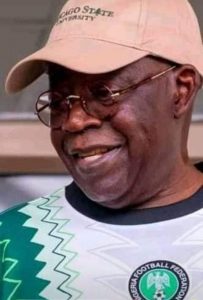“Substitute Town Halls with Regional or Ethno-National Conventions” Egbe Omo Oduduwa appeals to F.G

In the First Republic, the then Legislature, that is the Senate and the House of Representatives, failed to play its role as the custodian of democracy and defender of the Constitution as well as being the vehicle for socio-economic development by acquiescing to the military’s takeover of power albeit anchored on the prevailing Ethno-National contradictions brought to the fore by that military action. Likewise, its re-establishment as the National Assembly in 1979 eventually exhibited this inability to resist the attempt at truncating the will of the people as witnessed in 1983 and remained in limbo, with the exception of its feeble resistance in the aftermath of the “June 12” crisis, until resuscitated again in 1999.
This background provides the backdrop for the Legislature now being the vehicle for the entrenchment of Nigeria’s socio-economic underdevelopment and resistance to Change, being an avenue for its members to showcase their lack of purpose, reveling in jostling for what they always refer to as juicy positions without having the faintest idea on how to produce the juice itself.
It has so far ensconced itself within the anti-Change paradigm via a combined conspiracy of sorts anchored on hampering of the Change Administration’s efforts not only in governance but also in its socio-economic thrust as now being witnessed through legislative blackmail on the budget and contrived scarcity of fuel combined with the shenanigans of the Judiciary with legal professionals cavorting with attempts at ensuring denial of justice through all forms of legal shenanigans and a lackadaisical approach to peoples’ security manifested in the various conflicts exemplified by the age-long herdsmen terrorism, long left to fester over time by the State Apparatus, including the Legislature, which all pointed to attempts at stampeding the people into a frenzied expectation of an immediate solution to a long-standing problematic through some form of precipitate action against the Change Agenda.
All routes towards any form of Change as well as sustenance of any status quo depend on their legitimacy. The Change Administration and the Legislature are both legitimized by their electoral mandates, hence the full expression of legitimacy by each side would either ensure compatibility of expectations or automatic opposition of one against the other; in this instance, it is the Legislature against the Change Administration through its attempts to truncate Change efforts under the assumption that the expectations of Change would fizzle out and Nigeria would revert to the status quo ante with Nigeria’s continued over-reliance on rent collection as the basis for her economic fortunes and misfortunes and upon which the entire political edifice of the country rests, with the Legislature being the prime beneficiary, yet without living up to its responsibilities as the front line of the Change Agenda.
When President Buhari wondered why the First Republic was able to create working infrastructure for the country but not so in the over sixteen years of civilian rule, with all the financial resources at its disposal, it should be pointed out that the First Republic was, to a large extent and as the circumstances of the period permitted, characterized by its dependence on, and recognition of the Peoples it represented; its Legislative functions being derived from and reflecting the economic, social, cultural and political expectations of the Peoples; neither distancing nor leeching from the peoples thus being actually responsible to its constituents which formed the basis for its legitimacy in spite of its failure to re-establish it based on these imperatives when confronted with its negation by the military.
The issue to be resolved with today’s Legislature has nothing to do with efficiency or making it more productive through any sort of means but with its negation, its re-establishment, more so when it has fallen short of the expectations of its own legitimacy by making itself a vehicle for a political paradigm incongruent with economic or social development where its anti-development nature is a consequence of the failure of the socio-political environment that gave rise to it in the first instance and must necessarily lead to its negation; this not being a function of a more robust activity on the part of some members but in ensuring the reflection of the will of the people as the Legislature’s raison d’etre, the ultimate in legitimacy.
The will of the People is anchored on their extant peculiarities manifested in, for example, the age-long Niger Delta disaster and its leaders’ acquiescence or otherwise to this politically-induced economic malaise; the contradictions within the East on the Biafran question; the continuous attempt by hunters in the NE to be involved in anti-Boko Haram efforts, the various Ethno-National resistance to herdsmen terrorism, all of which are intertwined with the necessity for Change and none of which had ever been made an issue of Legislative debate in spite of the recent introduction of a “Grazing Bill” as if the entire problematic of herdsmen terrorism is simply about grazing opportunities.
Not only is herdsmen terrorism not a recent phenomenon to which the Nigerian State apparatus, with the Legislature as a prominent player, had over time, turned a blind eye, it is also not only applicable to Nigeria as it spreads across the West and Central African Regions thus setting it at par with the Region’s experience with political terrorism as exemplified by Boko Haram as well as the Islamic State in West Africa. These terrorists operate as herdsmen, roaming all over West and Central Africa such that the current attempt at a “Grazing Bill” will not only formalize their land-grabbing intentions but also affect the structure of the Nigerian State in the long run, an act tantamount to treason on the part of the Legislature.
Based on the legislature’s failure to recognize these phenomena, thus obviating its legitimacy, the Change Administration must now take the lead by utilizing its own legitimacy to re-create the Legislature without being encumbered by the Constitution.
Since 1999 and up till this moment, the Legislature had been on a merry-go-round of amending the Constitution, which shows not only the defectiveness of the Constitution but also a consistent inability by the Legislature to arrive at a plausible Constitutional paradigm for Nigeria and this on-going effort, while not expected to materialize until 2018, is an expression of the Legislature’s self de-legitimization with this 2018 time-table being very close to new elections definitely affecting the amendment exercise, thus showing that the National Assembly is completely disconnected with the Peoples of Nigeria and in dissonance with the Change Agenda thereby making this attempt another self-repudiation of its legitimacy.
How then should this needed Change be effected? It is a well-known fact that the 1999 Constitution was based on a false premise, to wit: “We, the People”. In legal terms, this premise does not, by itself, grant any powers and rights not specified in the Constitution; just as it cannot itself, being a statement of the principles in this Constitution, be based on a false premise, a situation which has now given room for its operators to act the way they had always been acting.
That such a premise as “We The People” is false implies that the entire principles, powers and rights it purports to embody are also false since “We, The People” had no hand in its making, directly or indirectly, being a product of military fiat which was not acting and did not act on behalf of “We, The People”, even as by so doing, its producers unwittingly affirmed the Peoples’ sovereignty. This false preamble only means, on the one hand, not binding on “We, The People” on whose behalf such an assumption was made, and on the other, “We, The People” need to exercise our right to correct this anomaly by ensuring that the Constitution is indeed a product of “We, The People”, the only guarantee of its legitimacy and anchor for the Change Administration.
With the Legislature having frittered away its legitimacy by its own free will, Egbe Omo Oduduwa proposes that the Change Administration should utilize its own electoral legitimacy by substituting its proposed Town Halls with Regional or Ethno-National Conventions, with or without central funding, as deliberative platforms on Nigeria’s Political Economy whose outcomes would be ratified in Regional/Ethno-National Referendums; culminating in a Constitutional Convention with the express purpose of re-creating the Legislature as well as formally setting the foundation for socio-economic development of the Nigerian Peoples while also addressing errors of omission or commission of the past. The existing Legislature will have no choice but to go along with this Peoples-based process or try to negate it; either way, the question of legitimacy would have been tabled and its resolution will be anchored on the expectations of the Peoples of Nigeria in tandem with all of their cultural, economic, social and political paradigms in whatever manner they manifest.
Shenge Rahman Akanbi, Femi Odedeyi
For and on behalf of Egbe Omo Oduduwa
(egbeomooduduwa1945@gmail.com)







